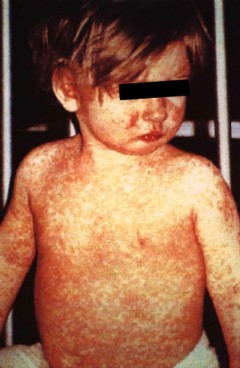
By Kim Matheson, Department of Health Sciences, Carleton University
Like many health researchers who are committed to having an impact on human behavior in order to prevent illness, I saw the ‘Nudge’ phenomena as a welcome revelation. And so when a colleague of mine presented a paper at a recent symposium, I, like many others in the room, visibly cringed when he commented that such techniques are paternalistic strategies that assume that people are incapable of making the right decision for themselves.
The thinking behind this assertion is well-stated in a published article by Mols et al. (2014). Certainly not everyone will agree with their thinking, and they make it clear that there are times when a simple nudge is sufficient and necessary to change behaviors. But there are many times when it might not be. Perhaps the motives underlying the behavior are sufficiently complex, and the ‘anti-behavior’ is more aligned with individuals’ goals. Perhaps change occurs when the nudged choice is salient, but disappears when it is not. Perhaps the idea that someone else thought they knew better than me, and tried to trick me into doing something different is sufficiently offensive that I purposely choose otherwise.
 So what is a nudge strategy? In effect, a nudge involves a slight push for people to behave in the ‘right’ direction, and is accomplished by making it easier for them to do so. This is accomplished by covertly making certain behavioral choices easier to act on. A simple example is getting children to eat more fruit instead of junk food by putting fruit at the front end of the cafeteria food line. There are many such simple actions where alterations of the environmental, social, or policy conditions, can achieve compliance. The idea is that people aren’t really thinking about what they are doing, or they don’t know how to make good decisions, and so we create the conditions for them to act correctly without having to think.
So what is a nudge strategy? In effect, a nudge involves a slight push for people to behave in the ‘right’ direction, and is accomplished by making it easier for them to do so. This is accomplished by covertly making certain behavioral choices easier to act on. A simple example is getting children to eat more fruit instead of junk food by putting fruit at the front end of the cafeteria food line. There are many such simple actions where alterations of the environmental, social, or policy conditions, can achieve compliance. The idea is that people aren’t really thinking about what they are doing, or they don’t know how to make good decisions, and so we create the conditions for them to act correctly without having to think.
Not surprisingly, put this way, there are numerous ethical questions raised. Such factors are manipulated all the time for corporate interests – but when such manipulations are directed towards the citizenry by governments or public agencies, this has the capacity to undermine trust, openness, and transparency. It is a paternalistic approach that many would question, as it suggests that even if we knew the evidence supporting the correctness of the behavioral choice, government does not view us as capable of making such a decision on our own. It raises questions regarding what other behaviors might ‘big brother’ like us to engage in that might not be in our collective interests?
 So how do we engage citizens so that they make behavioral choices that are in their own and the collective interests? The most recent issue where we see the need to ask this question concerns the vaccination of children against the measles. With recent outbreaks in regions of North America and Europe, real questions have been raised about parents who do not keep their children’s vaccinations up-to-date, if they vaccinate their children at all. As a result, we are seeing the return of diseases that we thought were all but eradicated.
So how do we engage citizens so that they make behavioral choices that are in their own and the collective interests? The most recent issue where we see the need to ask this question concerns the vaccination of children against the measles. With recent outbreaks in regions of North America and Europe, real questions have been raised about parents who do not keep their children’s vaccinations up-to-date, if they vaccinate their children at all. As a result, we are seeing the return of diseases that we thought were all but eradicated.
Many accusations have been hurled at anti-vax and vaccine-hesitant parents, ranging from their ignorance for believing data that has been proven to be erroneous (i.e., link to autism), to frightening them into thinking that their own child could become ill and die, to ostracizing and marginalizing them for rendering more vulnerable others in the population susceptible to the illness. What has become clear is that this kind of derogating, blaming, and shaming are more likely to entrench vaccine resistant parents than to encourage behavioral change.
So would a ‘nudge’ in the right direction work in this instance. I haven’t done the research, but it is highly unlikely in most cases. Maybe for the parents who just haven’t gotten around to getting their child vaccinated, setting up vaccine clinics in locations they’re likely to frequent, hence diminishing environmental barriers, might mean that when they and their child are meandering past, they will get their child vaccinated.
But for many other parents, the decision reflects a conscious and thoughtful effort to protect their child. They don’t trust the information they get from the media, they see scientific evidence for what constitutes healthy and unhealthy behaviors and products change on a regular basis (e.g., whether vitamins are good or bad for you; whether you should or should not be consuming fats, dark chocolate, coffee or red wine….). Who trusts government? Or pharma? They may trust the information they get from their doctor, but they might not see their doctor as holding the same values as they themselves – she or he does, afterall, represent the ‘medical establishment’.
 Parents trust other like-minded parents. Other people who want the very best for their own children, who want them to be safe and healthy. This isn’t about nudge – indeed, nudge would be an insult, suggesting that they don’t know how to behave thoughtfully about their children. This is about being good parents who value the health of their child, and want to do the best thing. But they have yet to hear from people that they trust, who hold the same criteria to evaluate what is right or wrong, and who can provide them with behavioral alternatives in which they can participate.
Parents trust other like-minded parents. Other people who want the very best for their own children, who want them to be safe and healthy. This isn’t about nudge – indeed, nudge would be an insult, suggesting that they don’t know how to behave thoughtfully about their children. This is about being good parents who value the health of their child, and want to do the best thing. But they have yet to hear from people that they trust, who hold the same criteria to evaluate what is right or wrong, and who can provide them with behavioral alternatives in which they can participate.
When health problems are complex, and people are consciously making behavioral choices, health researchers and practitioners need to respect this, and not assume that people are too ignorant to make the right decisions. We need to ask questions. What are their objectives? Which social groups are they looking to in order to determine behavioral options? Which options are consistent with the personal and collective values they espouse, and how can they act on these options? Our best strategy for influencing people to change their behaviors on issues that they care about is to be transparent, respect the social identities that their actions reflect (e.g., being a good parent), identify who they are prepared to listen to in order to evaluate their options, and work together to find ways that allow them to express who they are, and to do the best thing for everyone.
Based on Mols, F., Haslam, S.A., Jetten, J., & Steffens, N. (2014). Why nudge is not enough: A social identity critique of government by stealth. European Journal of Political Research. DOI: 10.1111/1475-6765.12073
Header image courtesy of SOMMAI at FreeDigitalPhotos.net
Fruit image courtesy of xedos4 at FreeDigitalPhotos.net